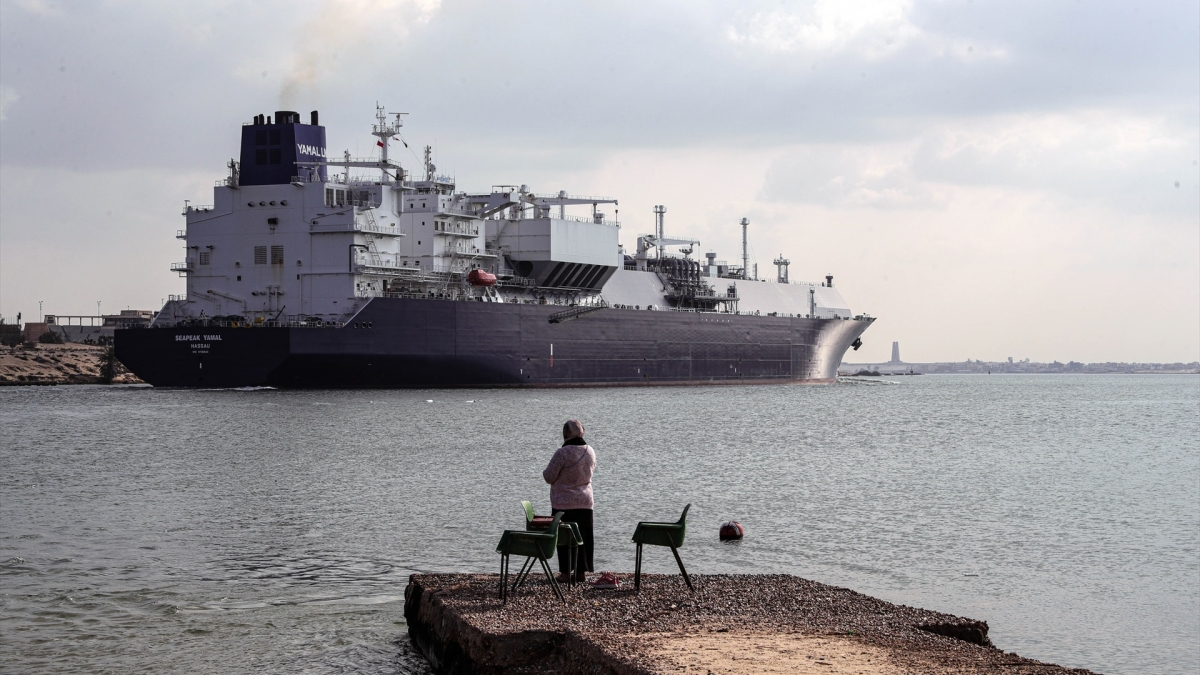Red Sea blockade threatens industrial production and threatens price rise

VALENCIA (EFE/Guillermo Ximenes). The blockade of the Red Sea has increased the cost of trade between Asia and Europe. Assembly chains of industries particularly sensitive to delays are at risk of destabilizingSuch as automobiles, and raise prices for consumers.
Delay in arrival of key products like palm oil, wheat, maize and rice for the food sector They may also help raise pricesAt a time when central banks continue to closely monitor inflation, according to experts consulted by EFE.
The textile sector, particularly dependent on international deliveries, is also vulnerable to the crisis.
In the automotive industry, Volvo and Tesla have been forced to suspend some segments of their production in Europe due to component shortages And Michelin has idled some manufacturing at its four Spanish centers due to falling rubber stocks.
Brands such as Seat, Renault and Ford have indicated to EFE that their chains are operating normally for now, while Citroën, Opel and Peugeot’s parent company Stellantis resorted to air transport to compensate for typical delays in some ships. Is. He assured that this is a shock, which has almost no impact on manufacturing. Volkswagen emphasizes that it does not expect “significant restrictions” at its plants.
Industry sources say the industry is ready to put into practice lessons learned during the coronavirus pandemic, when assembly lines improved their flexibility to adapt to disruptions in the arrival of some components.
From the Club of Spanish Exporters and Investors, which brings together companies with international activity, they emphasize that there will be “delays, but not shortages” of products.
Facing the possibility that the conflict with Yemen’s Houthi rebels, which is blocking circulation in both directions of the Suez Canal, will continue for months, some companies are stockpiling goods to ensure stock on their shelves. Experts shed light on this.
price hike
Coordinator of the Asia-Pacific Working Group of the Exporters Club, ramon gascon“The burden of prices has not yet been passed on to the consumer, but will pass if the situation drags on,” warns the EFE.
At the same time, it is clear that transportation costs represent a small percentage of the final price of products, so any direct increase in sea freight traffic will be limited.
Asset manager Ostrum Asset Management, for its part, said that while an “inflation shock” similar to 2021 is not expected, disruptions to trade routes that are no longer safe could be a catalyst for growth in the future.
The world’s leading shipping companies, including Maersk, Hapag-Lloyd and Mediterranean Shipping Company (MSC), have suspended all operations in the Red Sea to prevent attacks on their ships, which now have to navigate around the Cape of Good Hope to reach Europe. have to go. , which adds between two to three weeks of travel.
According to the Freightos logistics platform, the cost of a 40-foot container (12.19 meters long) to deliver goods from China and East Asia to Northern Europe has increased to $5,410. Since December 22, this rate has increased by 3.3 times.
Oil tankers have so far been less affected than container ships, which has helped curb the rise in crude, but that scenario is beginning to change. Shell joined BP this week in halting operations in the Red Sea and Qatar diverted its shipments of liquefied natural gas to Europe.
One of the models with which the British Treasury (HM Treasury) is working estimates that the crisis will increase the price of natural gas by more than $10 per barrel and increase the price of natural gas by 25%, an increase that would contribute It can also cause inflation in other economic sectors.
“Unfortunately, all this is not going to be resolved in a few days or weeks and that situation will only get worse,” he told EFE. Marco ForgioneGeneral Director of the Institute of Exports and International Trade.
“The conflict is likely to escalate unexpectedly and have an even greater impact on global trade,” says the head of a group of exporting and importing companies.
influence in spain
Trade between Asia and Spain reaches an annual value of 135,000 million euros. Most of the exchanges are imports, but the blockade will also affect exports from the Spanish primary sector, among others.
Industry and Tourism Minister, Jordi HeruAssures that the incidents detected so far are not serious, although “it is clear that there are some industries that will have to reconsider short-term logistics strategies.”
One of the most affected trade routes is the one that connects Spain to China, the country’s fourth international trading partner after France, Germany and Italy.
According to data from the Spain China Council Foundation, imports from the Asian country totaled 22,375 million euros and exports totaled 3,739 million euros in the first half of 2023.
Spain buys office equipment, machinery, chemicals, textiles, toys, shoes, automobiles and other consumer goods such as home appliances and furniture from the Asian giants, and sells it mainly chemical products, meat and raw materials, as well as fish and dairy products. Is. , fruits and vegetables, and drinks.
(TagstoTranslate)blockade
